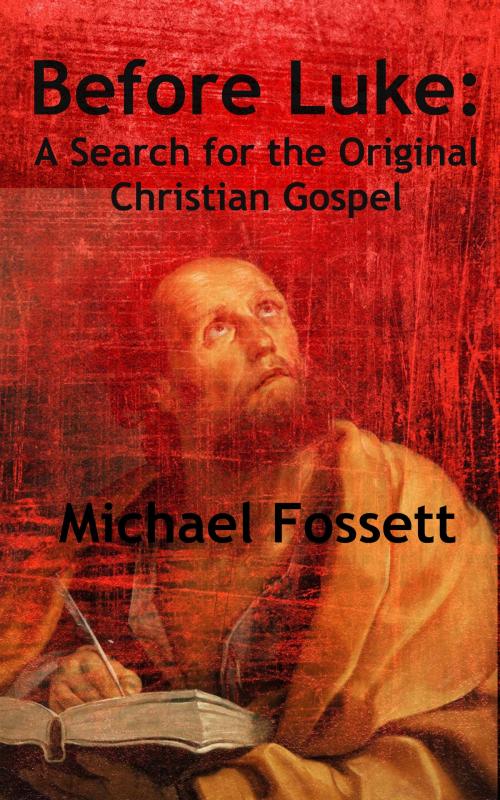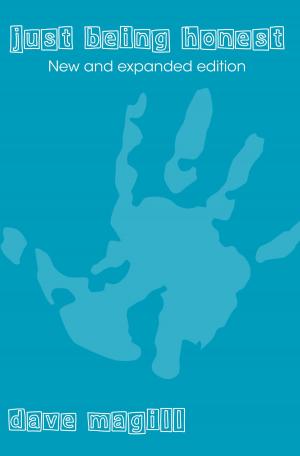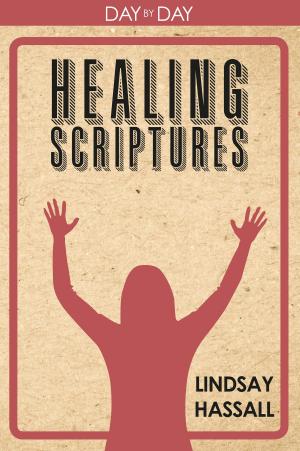Before Luke: A Search for the Original Christian Gospel
Nonfiction, Religion & Spirituality, Bible & Bible Studies, New Testament, Criticism & Interpretation| Author: | Michael Fossett | ISBN: | 9781310132018 |
| Publisher: | Gilead Books Publishing | Publication: | December 1, 2014 |
| Imprint: | Smashwords Edition | Language: | English |
| Author: | Michael Fossett |
| ISBN: | 9781310132018 |
| Publisher: | Gilead Books Publishing |
| Publication: | December 1, 2014 |
| Imprint: | Smashwords Edition |
| Language: | English |
Crucified under Pontius Pilate has been the central point of Christian belief. His governorship of Judea is dated 26-36AD. Jesus died on a Friday on the Eve of Passover (Jn 19:14,31). Scholarly research tells us that Passover fell on a Saturday in 30AD. The less likely alternative that Jesus died on the Day of Passover itself (Mk 14:16f) would date his death as 29AD.
Caligula was Emperor of Rome 37-41AD. He was assassinated before he was he could carry out his threat to desecrate the Jerusalem Temple. The cryptic message in Mark’s Gospel about the abomination of desolation (Mk 13:14) argues that when Mark wrote those words Caligula was still a serious threat. We should therefore expect the origins of our New Testament to lie in the decade following the death of Jesus.
In his introduction to his two-volume work we know as Luke-Acts, its author refers to the existence of such scripture (Lk 1:1-4). What then did these sacred texts say about Jesus, and especially about his resurrection that gives meaning to our faith (1 Cor 15:12-19)?
Comparing our Gospels of Matthew, Mark and Luke we can discern certain theological patterns. Relating these patterns to the earliest information we have about their formulations, we can begin to answer that question.
What emerges from this analysis is a trio of texts. The latest of these is an earlier version of Mark’s Gospel. This is Galilean in outlook and shows an interest in individual disciples of Jesus. The author would seem to be Mark who claims to be an eyewitness (Mk 14:51f).
Mark has drawn upon an earlier Gospel with a Judean outlook, which Luke seems to have used as the framework for his Gospel. Matthew also seems to have used it extensively. (It is possible its author was a Matthew whose name thus came be associated with our Gospel that bears this name.) This Judean Gospel shows an awareness of an even earlier sacred text.
This third sacred text is a theological tract about the advent of the Kingdom of God In style it seems to reflect the same Judean theological ethos where the emphasis is upon the community, rather than individuals.
Before Luke seeks to uncover the content of these three sacred texts.
Crucified under Pontius Pilate has been the central point of Christian belief. His governorship of Judea is dated 26-36AD. Jesus died on a Friday on the Eve of Passover (Jn 19:14,31). Scholarly research tells us that Passover fell on a Saturday in 30AD. The less likely alternative that Jesus died on the Day of Passover itself (Mk 14:16f) would date his death as 29AD.
Caligula was Emperor of Rome 37-41AD. He was assassinated before he was he could carry out his threat to desecrate the Jerusalem Temple. The cryptic message in Mark’s Gospel about the abomination of desolation (Mk 13:14) argues that when Mark wrote those words Caligula was still a serious threat. We should therefore expect the origins of our New Testament to lie in the decade following the death of Jesus.
In his introduction to his two-volume work we know as Luke-Acts, its author refers to the existence of such scripture (Lk 1:1-4). What then did these sacred texts say about Jesus, and especially about his resurrection that gives meaning to our faith (1 Cor 15:12-19)?
Comparing our Gospels of Matthew, Mark and Luke we can discern certain theological patterns. Relating these patterns to the earliest information we have about their formulations, we can begin to answer that question.
What emerges from this analysis is a trio of texts. The latest of these is an earlier version of Mark’s Gospel. This is Galilean in outlook and shows an interest in individual disciples of Jesus. The author would seem to be Mark who claims to be an eyewitness (Mk 14:51f).
Mark has drawn upon an earlier Gospel with a Judean outlook, which Luke seems to have used as the framework for his Gospel. Matthew also seems to have used it extensively. (It is possible its author was a Matthew whose name thus came be associated with our Gospel that bears this name.) This Judean Gospel shows an awareness of an even earlier sacred text.
This third sacred text is a theological tract about the advent of the Kingdom of God In style it seems to reflect the same Judean theological ethos where the emphasis is upon the community, rather than individuals.
Before Luke seeks to uncover the content of these three sacred texts.















